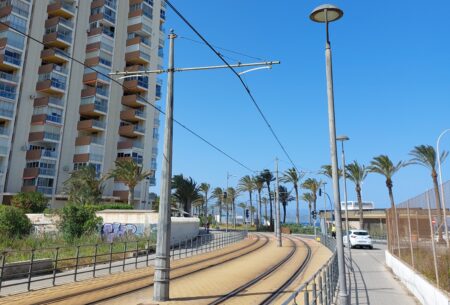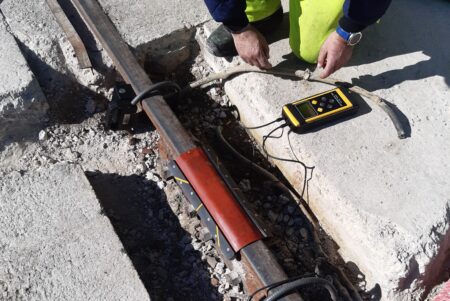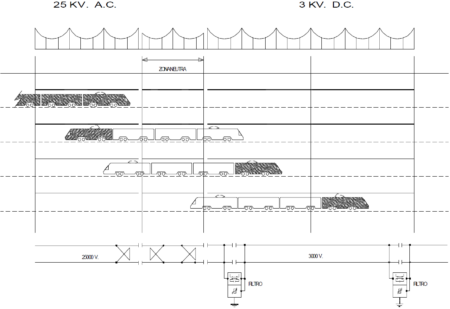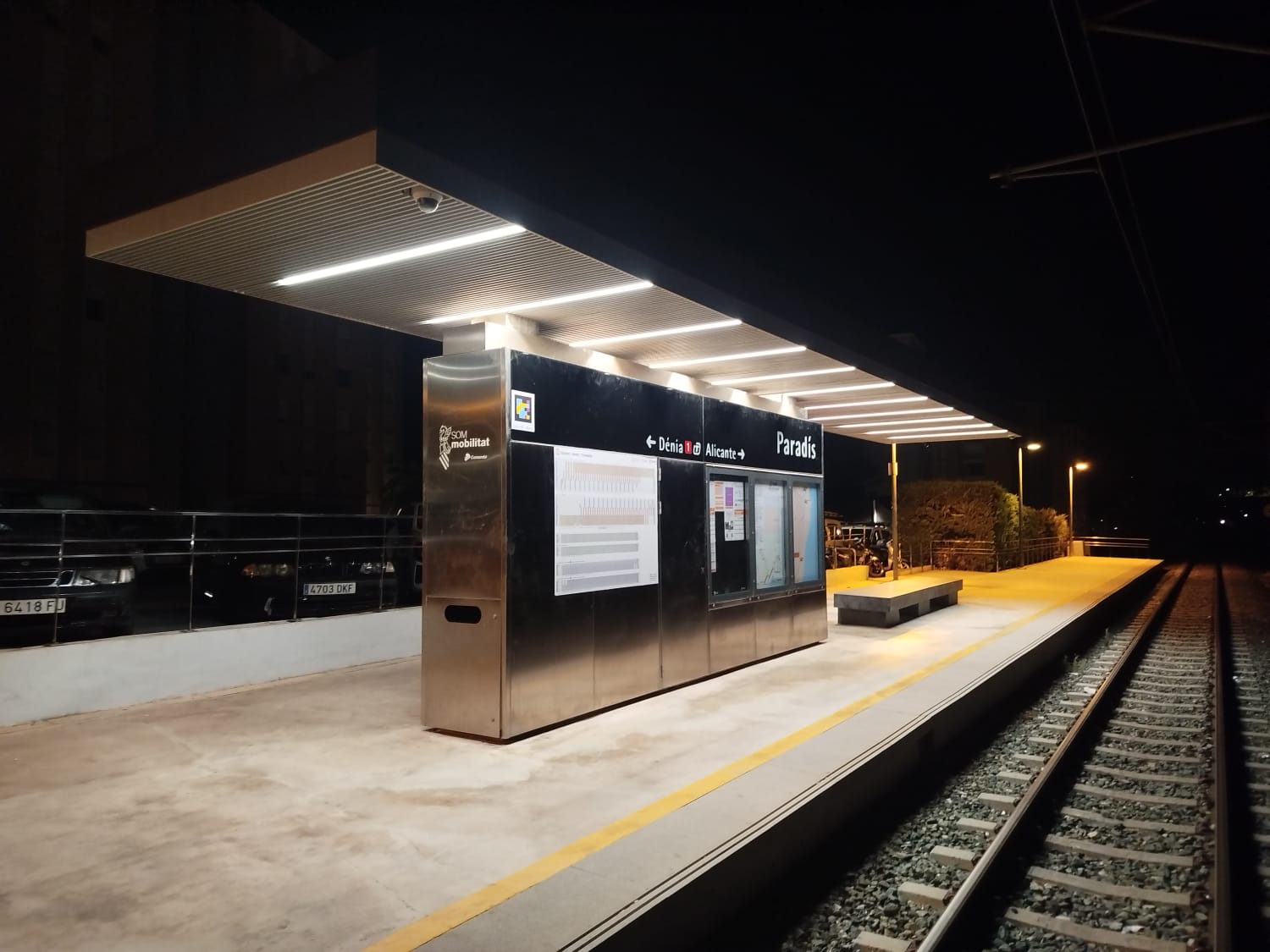On railway operations, electrical network reliability is not merely a matter of efficiency—it is a fundamental requirement for safety and service continuity. A failure in a rectifier, a filter, or a control system can affect thousands of passengers, disrupt signaling systems, or even compromise train circulation.
Fully aware of this, ZGR Corporación delivers a comprehensive Technical Service aimed at maintaining the high productivity, efficiency, and reliability of the power electronics solutions it designs, manufactures, and installs for the railway sector.
ZGR works closely with major operators such as RENFE (Red Nacional de Ferrocarriles Españoles, under the management of ADIF), FGV (Ferrocarrils de la Generalitat Valenciana, specifically for the Alicante Tram), the Murcia Tram, and TMB (Transports Metropolitans de Barcelona, specifically for the Barcelona Metro). ZGR accompanies these clients throughout the entire lifecycle of their equipment—from commissioning to maintenance and repair, both on-site and remote technical support, and the replacement of critical components, among other services.
“Our goal is to ensure the reliability, efficiency, and high productivity of ZGR solutions throughout their entire operational lifecycle,” explains Odilo Alonso, Technical Service Director at ZGR Corporación.
A stable railway network requires smart maintenance
The Spanish railway network depends on a robust, stable, and continuously monitored electrical infrastructure. ZGR’s Railway Technical Service acts as the bridge between engineering, operations, and maintenance—working closely with maintenance companies and public infrastructure operators to ensure the optimal performance of the equipment supplied by the company.
Its work combines:
- Controlled commissioning, carried out during off-peak or nighttime operation.
- Preventive, corrective, and predictive maintenance, supported by data analysis and in-depth technical knowledge of equipment functionalities.
- Remote monitoring and technical auditing of network quality.
- Immediate modular repair, either on-site or through module replacement and subsequent in-factory refurbishment.
- Technical audits and expert consulting to enhance efficiency and availability.
Through this approach, ZGR not only installs, maintains, or repairs—but also anticipates electrical failures, reduces downtime and unplanned stoppage risks, and extends equipment lifetime. The result is increased operational availability of the railway network.
Case studies: ZGR Railway Technical Service in action
Across Spain, ZGR has systems installed at strategic points of the railway network, including traction substations, signaling areas, and track gauge changers.
Alicante Tram, Murcia Tram and Barcelona Metro: The reliability of rectifiers
ZGR’s rectifier–chargers ensure the power supply for critical equipment in traction substations, such as protection relays, medium-voltage switchgear motors, PLCs, and SCADA systems.
A failure in these devices can cause electrical supply disruptions, directly impacting urban mobility.
According to 2024 data provided by TMB (Transports Metropolitans de Barcelona), the Barcelona Metro carried 468.67 million passengers, the highest figure recorded to date. Meanwhile, the Alicante Tram carries over 20 million passengers per year, and the Murcia Tram exceeds 4 million—making failure prevention absolutely essential.
ZGR handles the installation, calibration, and maintenance of these systems, applying preventive inspection protocols and immediate modular repairs. This ensures service continuity and minimizes the impact of potential failures on daily operations.

Image of the Alicante Tram power network
High-Speed Lines: Incremental and Harmonic Filters—Key to Signaling Safety
In Spain’s high-speed rail network (AVE, RENFE), power quality is crucial to operational safety.
Incremental filters are used to isolate adjacent track circuits within signaling systems, while passive harmonic filters reduce waveform distortion, preventing interference in communications and control equipment.
A failure in these filters could compromise track signaling and, consequently, railway safety. For this reason, ZGR coordinates preventive and corrective interventions with operators, scheduling maintenance during nighttime or low-traffic service windows.
Since these incremental filters are modular, ZGR’s field teams can replace faulty modules immediately, while the in-factory refurbishment team restores them for rapid reinstallation. The outcome: maximum availability and minimal downtime.

Detail of a measurement on a railway line. Source: ZGR Corporación Railway Technical Service.
Conventional Lines: Band-Stop Filters for Track Gauge Changers
Spain operates two main railway electrical systems:
- 25 kV AC (Alternating Current) on high-speed lines used by long-distance trains (e.g., AVE), matching the European standard gauge (1,435 mm).
- 3 kV DC (Direct Current) on conventional lines with Iberian gauge (1,668 mm), used for commuter and medium-distance services.
At RENFE’s track gauge changers, where trains transition between networks, electromagnetic disturbances can occur—potentially affecting signaling, communication, or onboard safety systems.
To mitigate these risks, ZGR specifically designed and manufactured 50 Hz band-stop filters for RENFE. These filters absorb electromagnetic interference generated during voltage transitions.
“These filters act as electrical guardians between networks, ensuring compatibility and system stability. That’s why their correct installation and maintenance are critical—because they guarantee safe, interference-free transitions with full operational security,” explains Yerai Caballero, Technical Service Engineer at ZGR, specialized in Electric Power Transmission and Distribution.

Diagram of the process from Alternating Current (AC) to Direct Current (DC) in track gauge changers. Source: ZGR Corporación Railway Technical Service.
Engineering, Innovation, and Maintenance: ZGR’s Value Proposition
ZGR’s Railway Technical Service goes beyond maintenance, repair, or equipment replacement. It integrates applied engineering, domestic manufacturing, and local support to provide a comprehensive and effective response to the needs of the railway sector:
- Data-driven predictive maintenance and remote monitoring.
- Ad hoc technical consulting to improve energy efficiency and extend equipment lifespan; controlled installations, commissioning, and on-site testing.
- Development of customized solutions for new operational challenges.
- Scheduled preventive maintenance, aligned with equipment technical guidelines and coordinated with clients to minimize service disruption.
- Corrective maintenance, tailored to each client and infrastructure, with emergency service available 24/7, 360 days a year.
- In-factory repair of faulty modules.
- Replacement and upgrades of hardware and software.
- Equipment renewal at end-of-life stage.
- Regulatory compliance monitoring and updates.
Through this combination of expertise, innovation, and close technical support, ZGR positions itself as a technological partner for railway operators and system integrators.
Behind every reliable journey, vigilant technology and an expert team ensure that our systems remain operational—demonstrating that reliability, flexibility, and high productivity are ZGR’s defining attributes.
Behind every reliable project, there is vigilant technology and an expert team that ensures our systems never stop.
Likewise, ZGR’s proximity to clients, highly specialized technical consulting, and over thirty years of experience in the sector form the foundation of the trust placed in this exceptional service.
Every day, the ZGR Railway Technical Service plays an invisible yet crucial role in maintaining the electrical stability that keeps trains and trams moving—ensuring sustainable transportation for thousands of people.
If you would like to learn more about our work, you can subscribe to our newsletter and join our LinkedIn Community.






